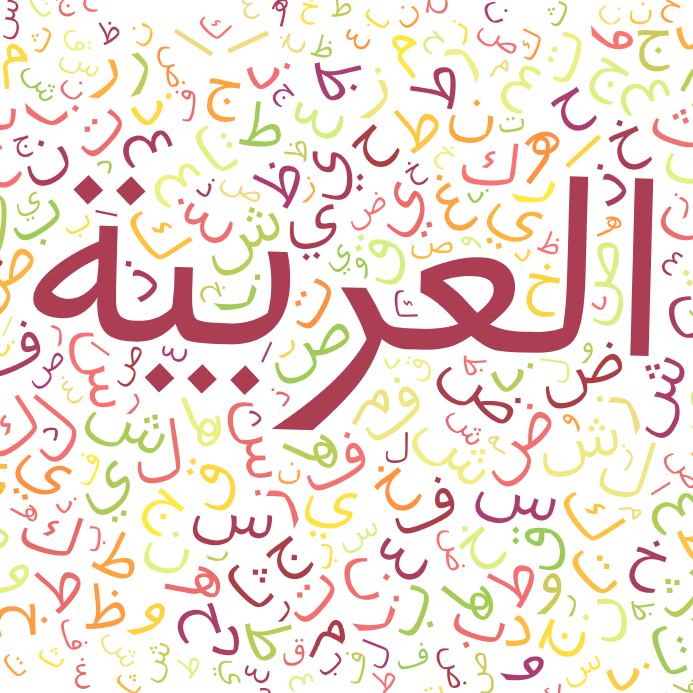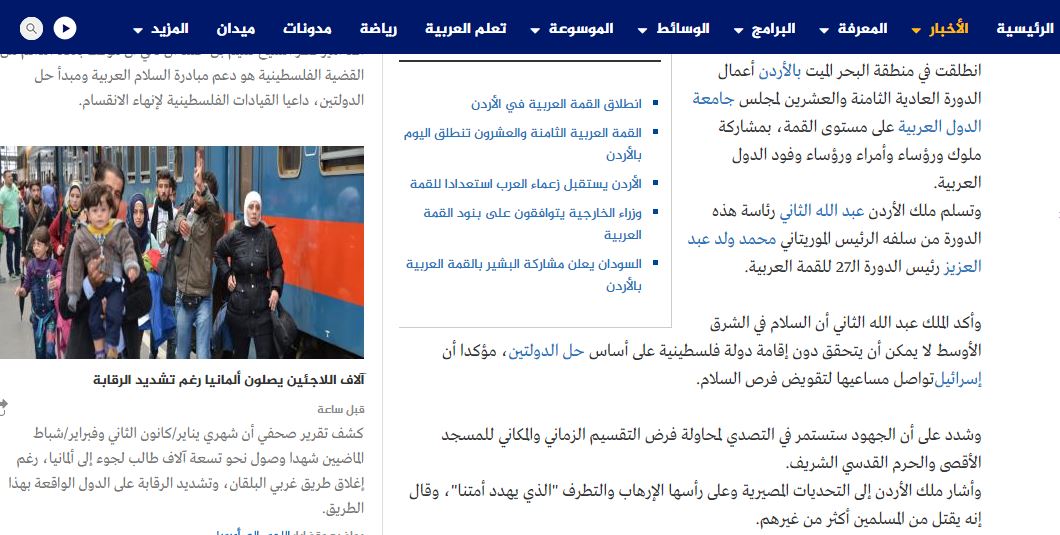
السلام عليكم ورحمة الله وبركاته
Often, when we talk about learning Arabic, the first thing that comes to mind is the Arabic that was used during the time that the Quran was coming down to us. This is known as “classical Arabic” or العربية الفصحى القديمة (The “old” proper Arabic).
However, it’s not the Arabic that is used and spoken in today’s world. We’d look at what’s used in the news and published books to get an idea of what’s currently considered “proper”. Leaving aside the fact that there is a lot of new vocabulary that didn’t exist centuries ago, the basic rules are pretty much the same. It’s called Modern Standard Arabic (MSA), also known as العربية الفصحى الجديدة (the “new” proper Arabic).
MSA is actually a lighter form of classical Arabic. The best way I can explain that is that it applies a lot of the rules of classical Arabic without actually breaking any them (i.e. it doesn’t apply all the rules, but whatever rules it does apply, it applies correctly). It’s a pretty formal language and you won’t find as many eloquent touches in it as you will in classical Arabic, but it works.
Take a look at this article from http://www.aljazeera.net/

It actually looks and flows similarly to classical Arabic. That’s very comforting, and we might even think that learning MSA would serve as a great bridge over to the classical side (and I’d agree with you there), but the problem is learning MSA sucks!
I’m not saying MSA is necessarily a problem, I’m saying that learning MSA is a problem. You want to know why? I’ll let some students of MSA tell you directly from their experiences.
On the the lack of quality resources and no real way to get from beginning to end:
There just aren’t that many great materials (directed towards English speakers) available, compared to other languages, specifically in the middle of the beginner-intermediate gap
On how it’s hard to practice:
it’s not the easiest language to practice unless you’re taking an immersive approach or are already in an Arabic speaking environment
What’s already out there doesn’t do the job. Even the authoritative texts are just poorly done:
I think one of the big reasons is the lack of good materials. It is so hard to find a really good Arabic textbook, most textbooks for Arabic are really really bad. I think al-kitaab is one of the worst language courses I ever used.
You can just hear the frustration in this guy’s words. It’s that bad:
The absolute s*****ness of the most widely-used textbook.
There are other reasons, but the main problems with MSA revolve around how it’s taught and how poorly done the textbooks are, and that leaves many people frustrated and confused.
It seems like everyone is trying to re-invent the wheel instead of just making something that works. In fact, there is a huge financial incentive to produce a college textbook on a subject with incomplete or wrong information in it, because then you have an extra reason to publish “new editions”. If you don’t know what I mean, just google “textbook industry” and see what comes up. What’s more important to them than results is profit. So what do we do then?
Well, I find that the people who did the best job of explaining Arabic are Muslim scholars, specifically the one from the non-Arab lands. I’m not saying this just because I’m a Muslim. I’m saying this because of the facts:
- Arabic is the language of Islam and is considered part of it. No other religion gives it such a central role. The Muslims deal with it more than anyone else, so their expertise in it is indispensable.
- Learning Arabic properly is a religious duty, which means teaching it properly is a religious duty too. A teacher who knows that he will carry the burden of sin if he messes up someone’s understanding of the language is going to be more meticulous and enthusiastic about getting it right than someone who’s just writing a book to charge money for it.
- They had a higher goal, which to was to appreciate the Arabic power of the Quran and help others do so. This is different from someone who is teaching solely to understand modern media. They knew you can’t reach the heights on shoddy footing, so they took ultra care to make sure the fundamentals were solid.
- The texts and curricula they developed to take absolute beginners to expertise of the language have worked for hundreds of years. Al-Ajurroomiyyah, al-Alfiyyah and other classical texts, along with their commentaries are essential for any serious student of Arabic.
I don’t see the need to follow any other flow. All that we need to do is adapt the same flow of the texts written on classical Arabic into the language of today’s time and place and go with it.
For someone to think that they can have a serious level of understanding of Arabic simply by chucking Muslims’ contributions to the side and merely imposing a European concept of language onto it is both pretty stupid and arrogant. If the results don’t work how they expected, the blame’s on them, not the language.
Modern academia won’t change anytime soon, so we need to step up and do our part to revive Arabic so it’s understood how it should be. We can do better, because we’ve seen better.
So, if you want to understand Arabic, study classical Arabic. You’ll get everything Modern Standard Arabic has and more, in less time and with less headache than trying to build up from what passes as a modern curriculum.
Next up إن شاء الله: my take on why you should be learning Arabic if you’re Muslim (and it’s no powder-puff piece).
Have you taken a Modern Standard Arabic course? Leave a comment and let me know you found it. I read EVERYTHING 🙂
Until next time, السلام عليكم
Like this post? Simply enter your e-mail and click “Yes, include me!” for updates
I grew up with an Arabic dialect within my household but was raised speaking English. I then moved overseas, where I learned MSA for four years. I found it extremely difficult being that it differed so much from the dialect I was used to hearing. You say to learn classical Arabic, but what about choosing a dialect and sticking with it to fluency?
The Quran is in classical Arabic. That’s why we undertake effort to learn it. Learning a dialect won’t do any good;pronunciation is bad, grammar different etc.
Natalie,
I’m not sure how much sticking to a dialect will help your fluency, except in that dialect.
If your goal is to get the classical Arabic, you’re much better off focusing on MSA. There isn’t that huge of a difference between those two in regards to “correctness”, and the biggest jump is in the vocabulary and usage of words.
Hope that helps
– Mustafa
Asalamualaikum. The best way to learn Classical Arabic aka Quranic Arabic is to do Ustadh NAK’s Dream 9 month program which is available and ongoing at the moment on his website, so register and do it. After that you can read Classical Arabic but if you want fluency, get Assimil With Ease Arabic B2 book which is MSA and it builds your Arabic up fast in 77 lessons. No grammar notes are required all there is, is exercises, vocabulary i think 2-3000 words, and grammar notes with each lesson except for every 7th lesson because it is a review of the previous 6 lessons. You’ll be solid in Arabic and maybe you can build up your Arabic to C2 level which is mastery (:
I can read advanced texts in MSA and understand them. But everytime I’d try to read an islamic book whether contemporary or classic I’d always end up scratching my head. I went from translating with 95% accuracy to about 75. I don’t know why classical arabic is so hard.